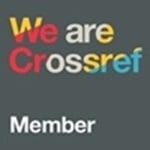Hubungan antara iklim sekolah dengan perilaku menyontek (academic cheating) pada siswa SMA di Malang
DOI:
https://doi.org/10.26905/jpt.v15i2.7695Keywords:
Cheating behavior, School climate and studentsAbstract
Cheating is illegal, dishonest and cheating in getting answer during test or doing assignment. Cheating is a problem and a long standing phenomenon in the world of education. An unfavorable scholl climate is one of the causes of a decline in academic integrity. The purpose of the study was to determine the relationship between scholl climate and academic cheating behavior in high scholl students in Malang. This research is a quantitative study with research subjects 83 students of SMA Panjura Malang. Using a proportionate stratified random sampling technique with a scale of cheating behavior and school climate scale. The results showed that there was a relationship between school climate and student cheating behavior, where the more positive the school climate the students get, the lower the cheating behavior. Conversely, the lower the school climate the students get, the higher the cheating behavior of students in school. Based on the results of calculations show, the correlation index is -0.415 with a sign value. 0.000 (p <0.05).
Downloads
References
Agustin, V., Afrizal Sano & Indra Ibrahim. (2013). Perilaku Menyontek Siswa SMA Negeri Di Kota Padang Serta Upaya Pencegahan Oleh Guru BK. Jurnal Ilmiah Konseling. Vol. 2,No. 1.
Anderman, E. M., & Murdock, T. B.(2007). Psychology of academic cheating. Amsterdam: Elsevier
Fauzia Pradini Wahyuningtyas & Endang Sri Indrawati. (2018). Hubungan Antara Konformitas Teman Sebaya Dengan Intensi Menyontek Pada Siswa Sma Kesatrian 2 Semarang. Fakultas Psikologi Universitas Diponegoro. Jurnal Empati. April, Vol 7. No 2. Hal 100-107. https://doi.org/10.14710/empati.2018.21671
Giallo, R., & Little, E. (2003). Classroom behavior problem: The relationship between preparedness, classroom experiences, and self-efficacy in graduate and student teachers. Australian Journal of Education Development Psychology. Vol 3, Hal 21-34.
Lailiyah Luluk, dkk. (2017). Hubungan Antara Iklim Sekolah Dengan Keterlibatan Siswa Dalam Belajar. Vol. 1 No. 1 Juli. 31-38.
Manguvo, A., Withney, S., & Chareka, O. (2011). The Crisis Of School Misbehaviour In Zimbabwean Public Schools: Teachers‟ Perceptions On Impact Of Macro Socioeconomics Challenges. Journal of the African Educational Research Network, 11. 155-162
Mitchell, & Mary M. et al. (2010). Student and Teacher Perceptions of School Climate: A Multilevel Exploration of Pattern of Discrepacy. Journal of School Health, Vol. 80 No. 6. DOI: 10.1111/j.1746-1561.2010.00501.x
National Center for Education Statistic. (2017). Indicators os School Crime and Safety:2016. Di akses 22 Oktober 2019. http:/nces.ed.gov/pubsearch/pubsinfo.asp?pubid=2011002
Prananda, D & Fuad. (2018). Hubungan Antara Orientasi Keberagaman Dan Perilaku Mencontek Pada Mahasiswa. Skripsi. Universitas Indonesia.
Purwita, dkk. (2013). Hubungan Antara Persepsi Siswa Terhadap Iklim Sekolah dengan School Engagement di SMK IPIEMS Surabaya. Jurnal Psikologi Pendidikan dan Perkembangan.Vol. 2 No. 01
Sari, Mahdi, D. (1998). Iklim Dini di Sekolah. Jurnal Dakwah. Vol. 1, Hal 33 – 47.
Supardi. (2013). Sekolah Efektif: Konsep Dasar dan Praktiknya. Jakarta: PT. Raja Grafindo Persada.
Sutisno Ino Rawita. (2013). Mengelola Sekolah Efektif. Yogyakarta: LaskBang PRESSindo.
Sugiyono. (2011). Metode Penelitian Kuantitatif, Kualitatif, dan R&D. Bandung: Alfabeta.
Downloads
Published
How to Cite
Issue
Section
License

This work is licensed under a Creative Commons Attribution-ShareAlike 4.0 International License.



